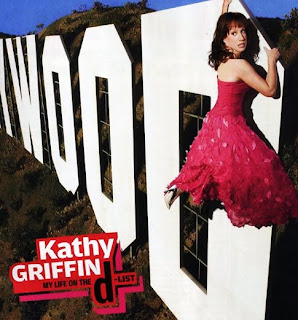 Understanding the principle that money makes the world go ‘round is of ample importance here, and one that Bono knew he had to capitalize on. Talking is important but only goes so far. To fund his goal, he merged with industry giants such as Dell, American Express, Apple and Starbucks. Selling (Red)® products through these companies, he’s able to provide a constant stream of donations to his cause. The singer has also set up a clothing company based in Africa so that it can continue to profit globally and fund its own needs.
Understanding the principle that money makes the world go ‘round is of ample importance here, and one that Bono knew he had to capitalize on. Talking is important but only goes so far. To fund his goal, he merged with industry giants such as Dell, American Express, Apple and Starbucks. Selling (Red)® products through these companies, he’s able to provide a constant stream of donations to his cause. The singer has also set up a clothing company based in Africa so that it can continue to profit globally and fund its own needs. Thursday, July 8, 2010
Seeing (Red) Through Bono's Eyes
 Understanding the principle that money makes the world go ‘round is of ample importance here, and one that Bono knew he had to capitalize on. Talking is important but only goes so far. To fund his goal, he merged with industry giants such as Dell, American Express, Apple and Starbucks. Selling (Red)® products through these companies, he’s able to provide a constant stream of donations to his cause. The singer has also set up a clothing company based in Africa so that it can continue to profit globally and fund its own needs.
Understanding the principle that money makes the world go ‘round is of ample importance here, and one that Bono knew he had to capitalize on. Talking is important but only goes so far. To fund his goal, he merged with industry giants such as Dell, American Express, Apple and Starbucks. Selling (Red)® products through these companies, he’s able to provide a constant stream of donations to his cause. The singer has also set up a clothing company based in Africa so that it can continue to profit globally and fund its own needs. Friday, July 2, 2010
Kathy Griffin: Comedianne Supreme
Tuesday, June 22, 2010
The Salton Sea
Tuesday, June 15, 2010
On Golden Pondering
Monday, June 7, 2010
Face it Facebook...

I sit bewildered as grandmother tells me she heard the moon landing on radio because they didn’t’ own a television set and how there was a time when she thought Elvis Priestley was black because of his smooth baritone. The fact is that she was a product of a generation that moved slower. It seems difficult to compare our times because the world’s changed so much since then. Technology has hurried speedily the unstoppable inertia of globalization, and so we live in an age when it becomes increasingly important to stay connected. Staying connected, has therefore become a commodity we’ve taken thorough advantage of, and by this, I of course mean Facebook®.
Okay, I have to begin by saying that I too like millions of others have for some time considered it “important” and cannot be without an account. I try to tell myself that I only have it because I want a space where I can upload and share pictures with whom I choose to share them with. The truth however, is that I find myself sporadically looking to see what other’s have written and occasionally comment; and like clockwork, I post a weekly opera scene—I guess its my way of spreading a little culture. This week it was the opening to Mozart’s Don Giovanni from the 2008 Salzburg Festival with Maltman and Schrott. Other than that, I find myself rarely writing anything on the wall.
A friend of mine wrote she was only a couple of friends away to having 1000 contacts and urged everyone to recommend people she’d might want to add. I laughed because here I am ignoring the persistent requests and occasionally deleting others at an attempt to maintain some kind of privacy. Now I don’t have any questionable material on my page, and don’t put anything that I’d be ashamed of, but I want to believe there’s a level of privacy people should keep hold of.
We’ve become so preoccupied with putting our business out there and looking into others’, that we’ve filled our brains with useless information. The media has created a business of exposing everything and anything celebrities do to appease those that subscribe to what they have to sell. It’s the basic law of supply and demand—capitalism at its best/worst. In a minute I can tell you that Jennifer Lopez was spotted having lunch at the Ivy and that Rhiannna got a new haircut. We subscribe to all of this. It becomes the topic of conversation. Were you to through some names like Harper Lee or Elena Kagan to those same people, they’d look at you bewildered.
I sit at my desk and tell myself, “Face it! Facebook is here to stay.” It’s just the new way people communicate. Just like people don’t call, they text; and they don’t mail letters, they e-mail, Facebook is the new way to communicate. I fear however, that gone too is the way we’ve learned how to maintain a conversation and negotiate ideas back and forth.
I don’t think Facebook is a terrible thing. In all honesty, I’d just wish we’d at least consider sitting down more often and talk, face to face.
Tuesday, May 25, 2010
Natalie Merchant: Leave Your Sleep



